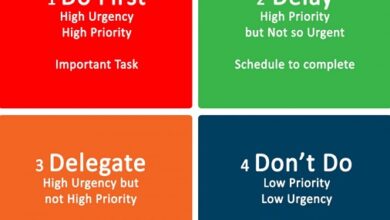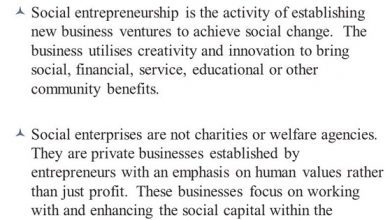Importance of commitment in the workplace benefits and problems of lack of commitment at work
What is commitment at work
Here in this section we will elaborate you the Importance of commitment in the workplace benefits and problems of lack of commitment at work.
This is an essential feature for professionals who want to stand out in a job market as competitive as the current one. Through commitment, the employee proposes to carry out all the tasks and demands required in an effective and productive way.
Still, it is a characteristic of those who are upright and who demonstrate their commitment to attitudes and behaviors. A professional with this profile is extremely responsible.
In this sense, when making himself available to be part of a new company, it is important that he agrees with the tasks of the scope of work, with the salary, benefits and everything related to his function.
Therefore, it is essential that these details are informed and are well aligned so that the professional can exercise their best version when assuming the position. The role of HR is essential to be able to command this process correctly.
The importance of commitment at work
For a company, the commitment to work on the part of its employees is extremely important, being essential for a good development of its goals and its climate.
Today, worrying only about the productivity of professionals is a mistake made by many companies, which forget to focus and analyze the commitment of employees.
So, for a well-organized and well-established company to function without too much worry, commitment makes all the difference. Since it is through it that the collaborator will be more willing to dedicate himself to projects with enthusiasm, enthusiasm and passion.
In addition, he will be more inclined not to miss work for unnecessary and futile reasons. When there is a guide to which path to follow, established by goals and challenges, the professional is more motivated and willing to give his best.
Therefore, there must be motivations for a professional to be committed to their work. This motivation can manifest itself in different ways, such as salary, benefits, bonuses, goals, challenges, organizational culture and organizational climate.
All of this contributes for an employee to feel engaged with the company and motivated. Despite being an arduous task for HR, it is extremely necessary for the proper functioning of the organization.
The benefits and how to implement
The benefits of commitment at work are a two-way street: they exist for both the employee and the company.
A professional, when he is committed to his work, shows that he is satisfied with the company, its function and its demands. That way, he’s more likely to stay in the organization and not look for other job opportunities.
Also, when an employee is satisfied and does not think about leaving, the turnover rate tends to be lower, generating savings in money and time for the HR sector.
In addition to the benefits, professionals who are satisfied and committed tend to speak well of the place where they work, generating a good image, solidifying a good employer brand, providing the opportunity to hire and retain outstanding professionals.
A team made up of committed professionals is more engaged, effective and productive. On a personal level, professionals who are satisfied and committed to their work enjoy a better quality of life , without stress and professional dissatisfaction.
The implementation of commitment is often something that takes place through a set of actions, attitudes and ways of managing. Thus, it is important that the expectations that the company has for a certain employee are always clear.
In addition, building trust, a culture of feedback and recognition for good performance are also important in the implementation process.
In this sense, in order to find an employee who is committed to the work, it is enough to analyze their behavior in relation to fulfilling demands, their availability to solve problems and unforeseen events, their empathy, their willingness to always be looking for new knowledge and learning and if is someone direct and honest.
The problems of lack of commitment at work
We already know that commitment brings numerous advantages and benefits for the company and employee, but it is also important to mention that the lack of commitment does not make the environment neutral. On the contrary, it ends up causing problems.
Furthermore, professionals who are not committed to their work end up influencing their teammates in a negative way.
In this way, the results obtained by the team and by the unmotivated professional are below expectations. Still, living with this type of co-worker can be exhausting, negative and uncomfortable.
When this occurs, the number of professionals who resign when they are not committed is greater, which generates a large flow of work for HR, more costs with empty chairs and an increase in turnover , harming processes.
How to Assess Commitment at Work
Assessment of commitment at work is an extremely important metric for a company, which helps to assess which professionals are satisfied, where a reorganization of functions is necessary and even which employees should be dismissed.
But to carry out an effective assessment and be able to capture this information, monitoring the performance and engagement of employees is the most important metric and can be observed in several ways.
Below, check out some essential steps for the assessment to be done correctly.
1-performance appraisal survey
The performance evaluation takes place to evaluate and measure the performance of an employee during a certain period. Through it, it is possible to analyze the resourcefulness of professionals in relation to the functions previously established, in the interview and at the beginning of the contract.
Furthermore, the analysis generates results that focus on the future, providing data that must be analyzed and that can add to the professional’s human and personal development, enhancing their performance.
Furthermore, it is possible to identify which technical skills — the so-called hard skills — can be developed and improved. Also, give a parameter about behavioral skills — soft skills.
2-Organizational culture analysis
Analyzing the company’s organizational culture is also a good way to assess the commitment of professionals at work. With it, it is possible to identify if the culture is tangible and consistent with what the organization preaches and applies on a daily basis.
Furthermore, it is possible to assess whether theory is in accordance with practice. Thus, if the organizational culture complies with what is informed to employees, they will feel welcomed and identify with the business, increasing their satisfaction and productivity.
Finally, this is an issue that must always be in check and under analysis, with constant improvements.
3-Feedback
Often, the need for good and classic feedback can go unnoticed within the company. To keep an employee always motivated and excited, it is important that constant returns are established in relation to their work and performance.
But it is necessary to know which feedbacks can be positive or negative, yet it is essential to know how to pass them on to the employee in question. The tone of voice, the words chosen, the way of approaching and even the body language are issues that must be considered when making this feedback.
If your company has a feedback culture, it is possible to see the development of professionals through it. Remembering that it can happen in a hybrid way: being an assessment transfer from leader to led or vice versa. But it can also happen as a team.
4-Tangible and well-defined goals
The goals of a company are important so that employees have a direction to follow and an established line of work.
Thus, in order to avoid unpleasant situations, leaving the professional unmotivated and not knowing where to start, it is necessary for him to know exactly what his goal is and the time for its execution.
Furthermore, setting tangible goals and rewards for achieving them is a great way to keep the professional motivated, engaged and committed to their work.
5-Technology helping measurement
For an effective analysis of commitment at work, it is possible to rely on technology and the various tools available on the market. Since they are great allies in company processes, especially for the area of Human Resources and people management .
Furthermore, methodologies such as the climate survey make a big difference when analyzing data on the performance of professionals, generating insights about commitment at work that would not be possible in other ways.



